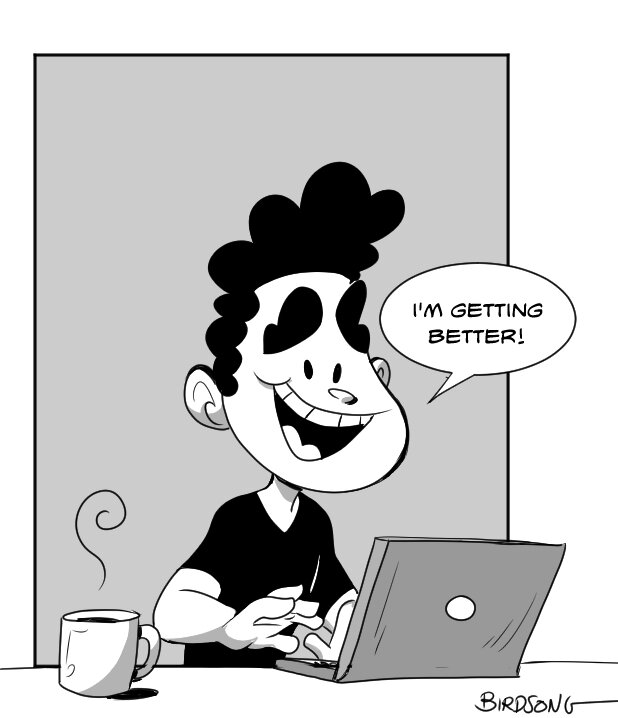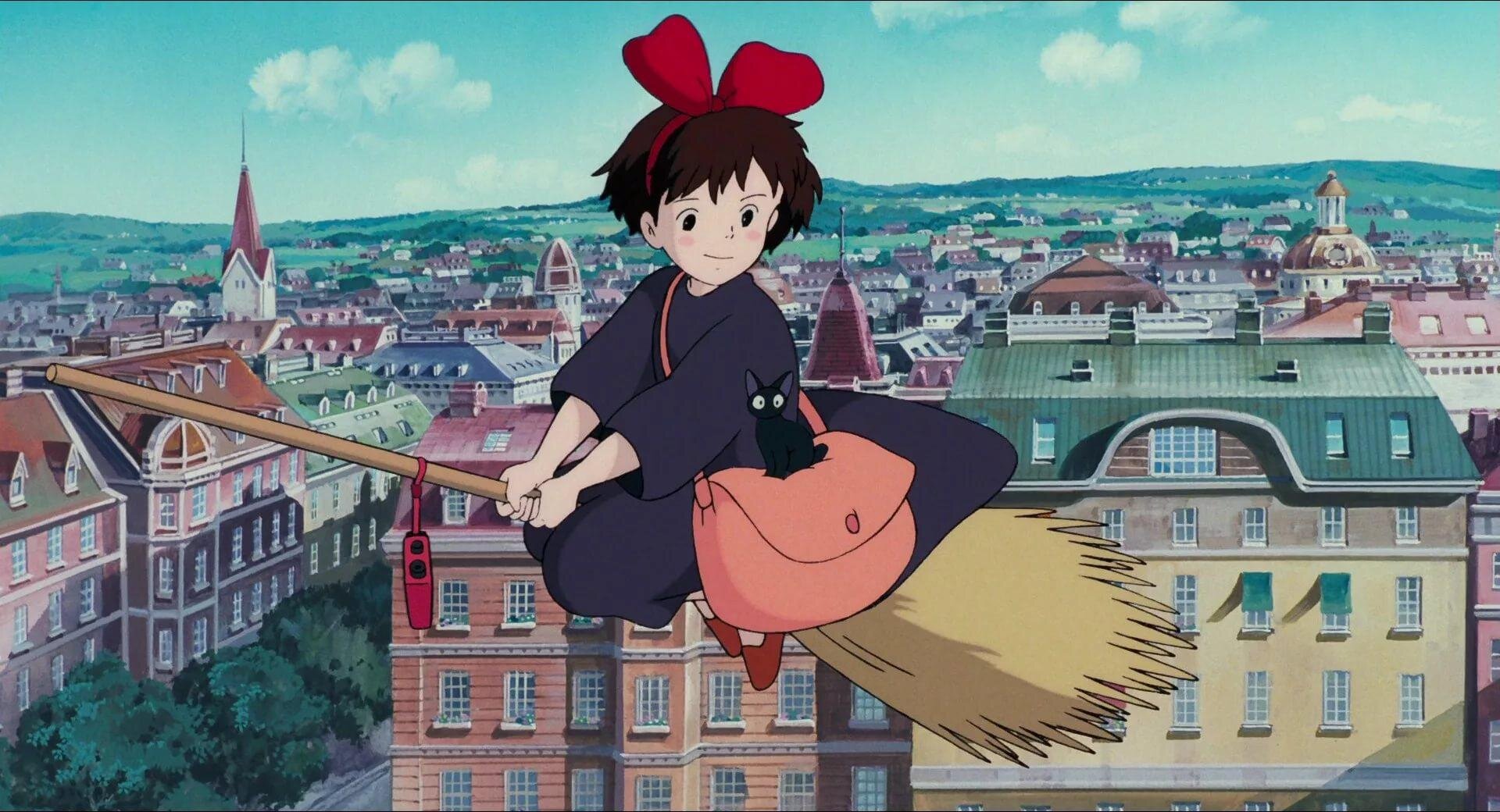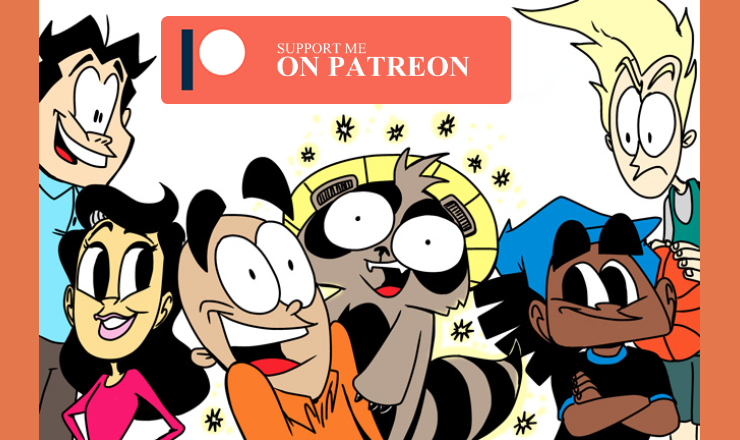We’re getting less creative. The scientific studies say so.
According to the article, “Research Suggests We’re All Getting Less Creative and Scientists Think They Know Why” by Jessica Stillman in Inc. magazine, studies have shown creativity is on the decline.
People could care less about creativity.
From the article:
“A researcher at the University of William and Mary analyzed 300,000 Torrance Test scores since the ’50s. She found that creativity scores began to nosedive in 1990. She concluded that we’re now facing a ‘creativity crisis,” reported author Michael Easter on Medium recently.
Scores on standard tests of creativity have been declining for decades. Does this mean we’re screwed?
I doubt it.
We need to face some facts and update our idea of what it takes to be creative to grow as artists. Here’s what we know and what we can do.
Why we’re less creative
The answer is no surprise. We’re too busy and overstimulated by technology and endless entertainment possibility in media to be creative.
Scientists blame “our hurried, over-scheduled lives” and “ever increasing amounts of (time) interacting with electronic entertainment devices,” Easter explains.
With less open time to be bored and keep our minds open to thinking, our free time is filled with watching screens and just taking in the entertainment.
Cooking those ingredients we absorb through all the media we consume into creative ideas takes processing time. If we continually fill the bowl, there’s no space to mix. It would be best if you had time to let it all gel.
With all the distractions from entertainment on our screens today, it’s harder to be creative even when you want to be.
I understand our mindset nowadays. Why think of new ideas when there are so many people who already did it for us? Watch those subpar TV shows, play those video games, read books by other writers and thinkers and nod your head. Who needs their own opinion or artistic voice in the world when there are so many already putting theirs out there?
With all the distractions from entertainment on our screens today, it’s harder to be creative even when you want to be. You’re forced to put more effort into shutting out influencers and doing things the way you feel is right.
On the other hand, if you’re looking to become more creative, there’s much more access to various examples of art, writing, music available to inspire and grow as a creative artist than there ever was in history.
You have the opportunity to learn from experienced creatives on platforms like YouTube, Medium, and anywhere you can search on the worldwide web.
Even though the internet makes it easier to learn and share your work, my concern is whether or not what we’re putting out is unique.
Pretty without personality
Are algorithms on social media platforms determining what’s worth your time and weeding out creative work? Probably.
Plenty of creative writers and artists out now aren’t getting seen because the algorithm pushes them behind other artists who know how to appeal to the masses.
In visual art, everyone looks like the stereotypical Anime art style. I’m not seeing enough blends of styles that look unique to one artist. Everything is looking the same. Well drawn, but the same.
When I was a kid in the 80s, it was a thrill to find a book on drawing comics or read one magazine on illustration.
I think art and especially illustration is beautiful to look at nowadays. Young people have access to physical art supplies and digital through iPads and computer software like Photoshop.
Tutorials by successful artists are all over YouTube, so learning from the best costs zero dollars and just a bit of your time. If you’re willing to put in the time to practice and grow your skills, your art will improve by leaps and bounds.
When I was a kid in the 80s, it was a thrill to find a book on drawing comics or read one magazine on illustration. Getting free instruction videos wasn’t available, but we had more illustrations in media like newspapers, magazines, and album covers.
I could take in the different art styles and reverse engineer what artists used to create their work and composed their pieces. My work may come out looking awful as a result. Or, it could grow into something pleasing to look at with my personality woven throughout every stroke of the pen—by adding more trial and error.
When will the sameness end?
One way I’ve seen this creativity reduction is in young people when I’m teaching art. I’ve worked in schools and with students from elementary to high school age.
I hate to admit; there’s a lot of sameness in the look of their work. For example, the influence of Japanese anime and manga styles is prominent.
As someone who lived in Japan, to study manga art style, I understand the allure. However, when I read or heard from artists there, they would always say their goal is to find their own unique art style.
The distinctive way they draw and tell their stories is what makes them popular. Trying to look like another artist is where you start, but it shouldn’t be your end goal.
Clearly, I’m a fan of anime and manga. I’ve drawn plenty of it but intending to learn new approaches to making comics and growing my individual style.
For a career where people are drawn to your art, whether it be illustrations, paintings, or graphic design, your unique flavor needs to shine through.
I’m not sure the young people I teach see it that way. Their goal tends to be to make it look as much like a popular manga they’re reading than to get their own take.
Why must everything be made in that style? As an art teacher, one of my goals is to inspire students to study various artists and styles. Please copy what you see but combine from different sources to build your unique look.
Most drawings from students look like the stereotypical Anime art style. I’m not seeing enough blends of styles that look unique to one artist. Everything is the same. Well drawn, but the same.
Drawing anime style makes everything into a formula. You draw the eyes this way, the shape of the head and hair that way. If you can draw it right, your art will look just like anime and be considered good.
Here’s the thing—I think it’s great to have the ability to draw in a manga style. If you want to draw comics on Webtoon or work in manga publishing or for an animation company that makes anime, that’s perfect. Keep it as a skill in your toolbox.
Your unique flavor needs to shine through for a career where people are drawn to your art, whether in illustrations, paintings, or graphic design.
It’s a challenge for students to develop creative ideas and execute them in their own way. Good. It’s supposed to be that way. It’s how you grow creatively.
All of us, especially young people, should accept the struggle and embrace how it will help them get to where they want to be as artists. Having every bit of entertainment on demand has made it difficult to have patience with growth.
Even with research and examples from master artists, it’s difficult to take risks and combine ideas to make something unique. That’s okay.
Struggle leads to breakthroughs.
Drawing anime style makes everything into a formula. You draw the eyes this way, the shape of the head and hair that way. If you can draw it right, your art will look just like anime and be considered good. It takes the uncertainty out of drawing. If you compare it to what anime is supposed to look like, and yours fits the bill, you’re a good artist.
As art students grow older and pursue a career in the arts, they’ll need to compete with others for jobs. Their style should look more unique will pull them out of the anime trap and hopefully discover what elements make their art their own.
Writing books and articles could be seen similarly. We can be inspired by articles like the one I’m writing right now but put our own spin on it coming from our experiences.
Nothing’s wrong with copying the voice of another writer, as long as your goal is to sound unique down the line.
Look at creativity in a different way
I believe we see less creativity, but I know plenty of artists do unique work that should be seen.
We have more time, in the U.S. at least, to be creative compared to, say, one hundred years ago. People were too busy surviving and working their butts off to think about adding more creativity to their work. Not to mention all the gatekeepers you had to get approval from to have your work published or placed in an art gallery.
Today, we can take complete control of our artistic careers if we’re willing to learn the ropes of running a creative business.
More creatives are making money, sharing their work with millions, and building something sustainable at this time.
If it’s just about good ideas, maybe we’re not revolutionizing as much right now. But I’m sure we have more opportunities to be creative and make something of our work compared to fifty years ago.
Make space for creativity
Maybe we’re becoming less creative, but it doesn’t mean you have to believe your work lacks value. The world needs your voice and art to inspire and help us become better, more well-rounded individuals.
You have more personal choices than ever before, so work with your mind to make sure you move forward artistically.
If you have to turn off the TV and social media to focus on your art or writing—do it. Being a more creative person and sharing what you make with the world is all on you. Here’s what the Inc. article suggests we do to increase our chances of being more creative:
Actively scheduling time to think, reflect, and experiment into your days, putting reasonable boundaries on your use of passive tech, varying your routine and your company, and getting out for more long walks can all help ensure you’re bucking the trend and nurturing your personal creativity.
Give yourself quiet time to think and reflect. Mold what you take in through media into golden creative inspiration. Have a goal of creating unique work that reflects who you are as a person.
Everyone else may be becoming less creative, but it doesn’t have to be you.

























